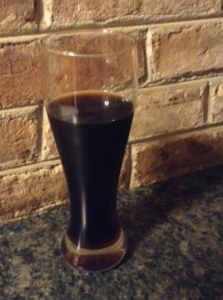I was astonished to learn today that “Pilsner” is not a brand of beer, but a category. First I thought, what on Earth does “Pilsner” mean? Then I thought, wait, do I really know what “ale” or “lager” means, either? Help me out, Language Nerd. Where do our beer words come from?
Henry B.
***
Dear Henry,
I’m glad you don’t wanna know beer technicalities. Allow me to disclaim: I am in no way a Beer Nerd. I drink root beer beer, for hops’ sake. That is not the beverage of choice for someone who knows things about beer. So any gentle readers looking for info on yeast and temperature and mouthfeel and whatnot should head to the Beer Judge Certification Program’s style guidelines.
But beer word etymology? Oh yeah. I’m on it.
Pilsner is actually hella straightforward. It’s a style of beer invented in Plzeň, in what’s now the Czech Republic. Boom. And it’s not the only beer style named for the city where it was first brewed.* Bock is another, from Eimbeck, Germany. And the denizens of La Trappe monastery, in France, dreamed up a style that came to be known by their order: Trappist beer.
The other big category is beers named for color. Pale, Golden, and Blonde beers are yellowish, Brown are dark, and Amber beer is, uh, amber-colored. Dark and Light lagers are also known by their German translations, Dunkel and Helles respectively. And India Pale Ale, IPA, is a combo: it’s pale in color and was a special blend made to better survive long boat trips from England to India. Wheat beer is made with more wheat, proportionally, than most beers, but “wheat” itself comes from the word for “white,” and you see this category labelled in German sometimes too: Weiss.
Stout is a little more involved. When it was first applied to beer the word simply meant “strong.” Its semantics have drifted in the intervening years, to the thickset human figure we think of now, so the name “stout beer” is a leftover from an earlier stage in this word’s life. And Porter is also neat. The name comes from the job, a guy who carries things around. Apparently porter ales were seen as a working man’s beer when they came out in the 18th century, so they got a working man’s name.
That leaves us with the big overarching categories – Ale, Lager and Beer itself. In Old English, “ale” was the usual term, and “beer” a sweeter drink, but around the 15th century “beer” became the malt drink with hops, and “ale” was hops-free. About 200 years later “ale” became a strong hopped drink, and somewhere in those two centuries “beer” took over as the general word. Both of these are so old that the first clear uses of them are to alcoholic drinks, and the people that argue about these things still debate whether, say, “ale” started as a word meaning “reddish-brown” or “beer” came from “brew.” “Lager” is easier; it means “stored,” as in beer that was stored for a while before drinking.
Just to round us out, cheer meant “face” back in the 1200s, then became the expression on the face, then whatever was going on in your mind to give you the expression on your face (this is where phrases like “be of good cheer” came in). The positive meaning became central and by the 16th century “cheer” meant the things that make you happy, but it wasn’t until about a hundred years ago that we started saying that when we clink glasses.
And with that – cheers!
Yours,
The Language Nerd
*Looking beyond beers for a mo, Champagne, Cognac, and Bourbon are all named for regions in France.
**For more on this next layer of etymology, looking at where these color terms came from, head here.
Got a language question? Ask the Language Nerd! asktheleagueofnerds@gmail.com
Twitter @AskTheLeague / facebook.com/asktheleagueofnerds
Etymology today through the Oxford English Dictionary, and it still warms the cockles of my heart when I can just log onto that site for free through my public library (it’s $300 a year to get it for yourself). I double-checked that I wasn’t mixing types and brands myself at the Beer Judge Certification Program, which Wayne Knox, owner of the 1817 Brewery, passed along to me. Thanks!
